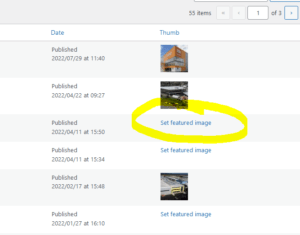
Editor’s note: “Ask an SEO” is a weekly column by technical SEO expert Jenny Halasz. Come up with your hardest SEO question and fill out our form. You might see your answer in the next #AskanSEO post!
Welcome to another edition of Ask an SEO! Today’s question comes from Vahan in Armenia:
Do sticky sidebar banners/related posts/share buttons/other promotions etc. which actually don’t disturb people from reading post (i.e., don’t overlap with content and hide some part of it) affect page ranking?
Does Google misunderstand such banners and detect them as something which disrupt the
reading experience? Should sites avoid using them as much as possible even on desktops?What is the best layout for blog posts?
In general, sidebars and other promotions won’t have an impact on your site. The efforts Google has made to penalize sites with intrusive ads are designed specifically around things that intrude on the user’s experience.
But Google knows you have to make a living, and that many sites are monetized with ads. In fact, Google is one of the largest worldwide providers of ads.
Ad Content on Page
In my opinion, sites with one or two ads (or even three if they’re small) appearing on the side of the
main content or above the fold are going to be OK.
What I think Google doesn’t want to see are sites where there are so many ads or the ads are so prominent that they interfere with the user reading the main content of the page.
I recommend to my clients that they try to stay under 30% ads to 70% main content visually if possible, but this is a random number I made up just so clients have a guideline; it’s not officially sanctioned by Google.
The other thing that Google representatives have stated publicly is that they don’t want confusing ads – if there’s any question about what is an ad and what is main content, you could have a problem as well.
Label your ads as sponsored, make them unobtrusive, and you should be fine.
Interstitials
You didn’t ask about interstitials, but I’m going to mention it because they’re very important, especially
on mobile.
If you are blocking users from main content with any kind of pop up, you could have a problem.
If your pop-up forces the person to click something like “no I’m not interested in saving money” or asks the user to download your app, you will have a problem, as these are two specific instances Google has warned against.
In general, pop-ups like newsletter signup or coupon offers will not be a problem, but they can significantly slow down load time.
My personal opinion is that I don’t want to be offered a newsletter or other sign up immediately upon arriving at a site. I suggest to my clients that they make any popups like this activate after a user scrolls to a certain part of the page or clicks on a link.
However, as long as they can be easily closed and they don’t cover the entire main content area, they should be fine.
Supplemental Content
Finally, you mentioned sidebars that have things like “related posts” in them.
If the content is relevant to the page and is not random links to another site or another topic that is unrelated, this is considered “Supplemental Content”, and it is a good thing.
Google’s Quality Rater Guidelines (opens PDF) have indicated that sites with good supplementary content
are generally considered higher quality.
Have a question about SEO for Jenny? Fill out this form or use #AskAnSEO on social media.
More Resources:
Image Credits
Featured Image: Paulo Bobita















